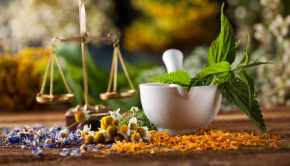Why We Are What We Eat
The gut environment is where trillions of microbial life forms control production of vitamins, manufacture of neurochemicals, the switching on and off of genes and expression of hormones. Think of the gastrointestinal tract as an “engine” or control room. This microbial environment is so important that scientists and geneticists are currently conducting a global Human Microbiome Project in which new bacteria are being discovered and the role they play is being investigated.
A principle of functional medicine and neurology is that the gut can influence brain health, too, through what is called the gut-brain axis, a two-way street of communication between the gut and the brain, connected via a the vagus nerve, which sends signals back and forth. Why this is significant is that the food we eat—and in turn, the food that our microbiota eats—influences our health, longevity and well-being.
Eating food creates a parasympathetic state of being that is calm and nurturing, in which our bodies can focus on growth and repair. The body turns most of its energy to digesting food, allowing our microbiome to do the daily work of assimilating nutrients. For example, as we begin chewing (or even think about eating) the pancreas releases digestive enzymes into the small intestine, helping to break down proteins, fats and carbs. By contrast, eating in a stressed state won’t allow the gut to digest foods or distribute nutrients properly.
The opposite of a parasympathetic tone is called our “fight-or-flight” survival response. Stress that is perceived (mostly by the brain) will pull blood away from the gut. In a sympathetic state, the brain signals the gut via the vagus nerve, which immediately changes the gut environment. Blood retreats from digestion and moves to other parts of the body such as muscles and heart into general circulation, where it is needed to rapidly increase oxygen supply.
Excessive stress physiology—sympathetic dominance—will cause an overgrowth of certain types of unhealthy bacteria in the gut that thrive in low oxygen environments. Eventually, this will produce inflammation and a breakdown in the protective barrier systems that are designed to keep toxins and viruses out of circulation. To counteract this, we want to focus on enhanced parasympathetic tone. Things like deep breathing, and specifically nasal breathing typical of a yoga practice, or even a walk in the park, are great tools, as is a largely plant-based diet with a lot of prebiotic fiber for the microbiome.





























